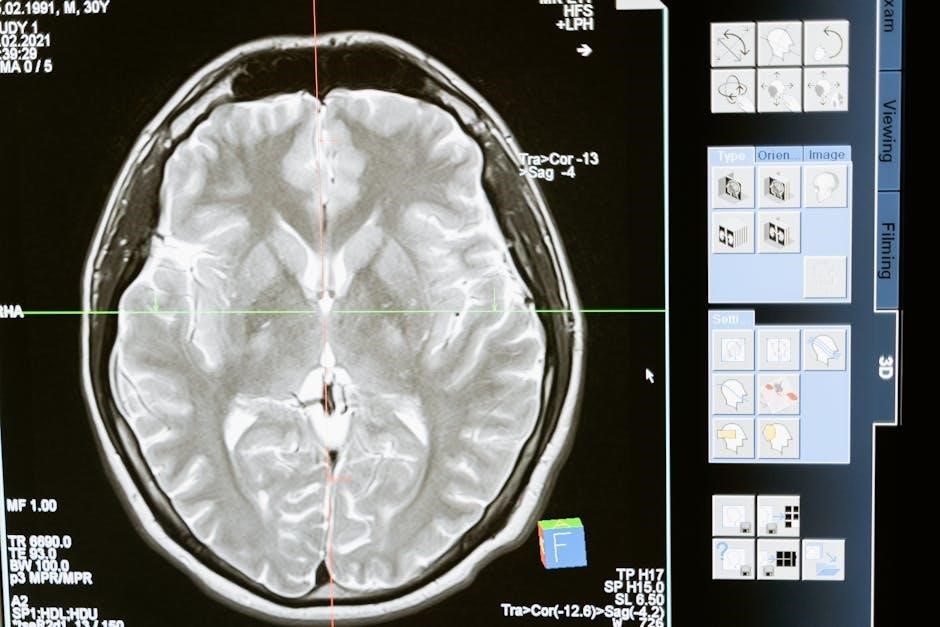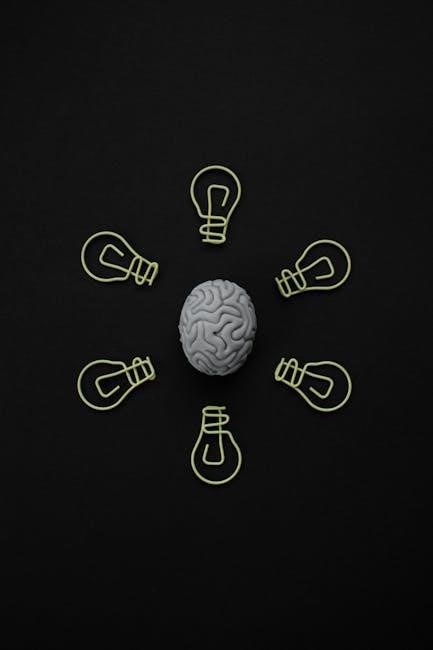Brain Flakes are advanced search strategies that help users refine their queries for precise results. These techniques enhance information retrieval by utilizing specific operators and filters, making them invaluable for researchers, professionals, and anyone seeking accurate data efficiently online.
What Are Brain Flakes?
Brain Flakes are advanced search strategies designed to refine and enhance information retrieval. They involve using specific techniques and operators to narrow down search results, ensuring precision and relevance. By combining basic search strategies with advanced techniques like Boolean operators, filetype filters, and cache searches, users can uncover detailed and accurate information. Brain Flakes are particularly useful for researchers, professionals, and anyone seeking to navigate vast amounts of data efficiently. These strategies leverage tools like Google-specific features, such as the intitle: operator to find words in page titles or site: to search within specific websites. Additionally, techniques like using quotation marks for exact matches or ellipses for number ranges (e.g., 1995…1997) help in pinpointing specific information. Brain Flakes essentially act as a bridge between basic keyword searches and sophisticated query refinement, making them indispensable for anyone aiming to optimize their online research.

Why Are Brain Flakes Important?
Brain Flakes are essential in today’s digital age, where information overload is a common challenge. These advanced search strategies empower users to refine their queries, ensuring they find precise and relevant results quickly. By mastering Brain Flakes, individuals can save time, enhance productivity, and make informed decisions. They are particularly valuable for academic researchers, professionals, and anyone needing reliable data. Brain Flakes help users navigate through vast amounts of information efficiently, reducing the noise and focusing on what truly matters. In a world where data is abundant, these techniques act as a powerful tool for uncovering hidden insights and staying ahead. Whether for personal use or professional tasks, Brain Flakes are indispensable for optimizing online research and achieving better outcomes. Their importance lies in their ability to transform the way we interact with information, making it more accessible and meaningful.

Core Concepts of Brain Flakes
Brain Flakes involve using specific search operators like filetype:, intitle:, and Boolean logic (AND, OR, -) to refine queries. These techniques help users filter information, enhancing search efficiency and accuracy by targeting precise data effectively online.
Basic Search Strategies
Basic search strategies form the foundation of effective information retrieval. Start with simple keyword searches, using relevant terms related to your topic. For example, entering “ebola public health response” yields targeted results. Use general keywords to broadly explore a subject, then gradually narrow your focus.
Boolean operators are essential tools. The AND operator combines keywords, ensuring both appear in results, while OR broadens searches by including either keyword. The minus sign (-) excludes unwanted terms, refining your query. For instance, “ebola AND epidemic” narrows results, whereas “ebola OR hemorrhagic fever” expands them.

Utilize quotes for exact phrases, such as searching for “Saturday Night Live 1995-1997” to find content within a specific range. Additionally, employ tools like filetype: to locate specific document types, such as PDFs or PPTs, enhancing your search precision. These basic strategies help users efficiently navigate vast online information, ensuring they find relevant and accurate data.
Advanced Search Techniques
Advanced search techniques elevate your querying skills, enabling precise and efficient information retrieval. One powerful method is using Google operators like intitle: to search within page titles or filetype: to locate specific document types, such as PDFs or PPTs. For instance, intitle:brain flakes instructions fetches pages with those exact words in the title, while filetype:pdf brain flakes retrieves PDFs on the topic.
Another advanced strategy is site search, which limits results to a particular domain. Using site:example.com brain flakes searches only within “example;com” for relevant content. Additionally, employing number ranges, such as brain flakes 2020-2025, helps find information published within a specific timeframe.
Cache searches are invaluable for accessing archived versions of pages. Typing cache:www.example.com retrieves Google’s stored copy, useful if the original site is unavailable. These techniques, combined with Boolean logic, significantly enhance search accuracy, making them indispensable for researchers and professionals seeking precise data. By mastering these advanced methods, users can efficiently uncover the information they need, saving time and effort.

Tools and Resources for Brain Flakes
Google’s advanced search features, cache tools, and site-specific search options are essential resources for mastering Brain Flakes. These tools enable users to refine queries, access archived content, and target specific domains, enhancing search efficiency and precision.
Google-Specific Features
Google offers a variety of advanced tools and features that can significantly enhance your search experience. One of the most powerful options is the use of search operators like intitle:, filetype:, and cache:. These operators allow users to narrow down results to specific criteria, such as finding keywords in page titles or retrieving cached versions of websites. Additionally, Google’s Tools menu provides filters for date ranges, enabling users to focus on the most recent or historical content. Features like site: allow targeting searches within specific domains, while related: helps discover similar websites. Advanced Google features also include numeric range searches (e.g., 1995..1997) and the ability to exclude terms using the minus sign (-). These tools, when combined, offer precise control over search results, making Google an indispensable resource for both casual and professional users seeking accurate and relevant information.
Cache and Site Search
Cache and site search are powerful features that enhance your ability to find and retrieve specific information efficiently. The cache: operator allows you to view archived versions of webpages, which is particularly useful if a page is unavailable or has been modified. For instance, typing cache:www.example.com in the search bar will display Google’s most recent stored version of that site. This feature acts like a time machine, providing access to historical content that might otherwise be lost.
Site search, on the other hand, enables users to limit their search results to a specific website or domain. By using the site: operator, you can refine your search to only include pages from a particular site. For example, site:example.com keyword will return results containing “keyword” exclusively from example.com. This tool is invaluable for focused research or when seeking information from trusted sources. Together, cache and site search empower users to access precise and relevant data, making them essential techniques for effective online research.

Practical Applications of Brain Flakes
Brain Flakes techniques are widely applied in academic research, professional tasks, and everyday problem-solving. They enable efficient information retrieval, enhance productivity, and facilitate deeper insights, making them indispensable for scholars, professionals, and anyone seeking precise data quickly and effectively online.
Academic Research
Brain Flakes techniques are invaluable for academic research, enabling scholars to locate specific and relevant information efficiently. By using operators like intitle: and filetype:, researchers can narrow down results to peer-reviewed articles or specific document types, ensuring high-quality sources. Additionally, features like cache: allow access to archived versions of webpages, which is crucial for citing sources that may have been updated or removed. Boolean operators further refine searches by combining terms with AND, OR, or excluding irrelevant results with a minus sign. This precision accelerates the research process, helping academics gather credible data swiftly. Moreover, advanced search strategies reduce information overload, allowing researchers to focus on pertinent material and maintain academic integrity. These tools are essential for producing comprehensive and well-supported studies in various fields.
Professional Use Cases
Brain Flakes techniques are highly beneficial for professionals seeking precise and relevant information quickly. In a business context, advanced search strategies can help identify market trends, analyze competitors, or locate specific industry reports. For instance, using site: followed by a domain name allows professionals to search within a particular website, making it easier to find internal resources or track updates. Additionally, filetype: can be used to locate professional documents like PDFs, PowerPoint presentations, or Excel spreadsheets, which are often essential for business planning and decision-making. Features like cache: enable access to archived versions of webpages, which can be useful for monitoring changes in company policies or product offerings over time. Moreover, combining Boolean operators with specific keywords helps refine searches, ensuring professionals gather the most relevant data efficiently. These advanced techniques are particularly valuable in industries like marketing, finance, and law, where access to accurate and up-to-date information is critical for strategic planning and staying competitive. By mastering Brain Flakes, professionals can streamline their workflows and enhance productivity.

Troubleshooting Common Issues
Common issues like information overload can be tackled by refining search queries using specific operators and filters. Techniques like cache: and site: help access archived pages or limit searches to specific domains, ensuring more precise results and reducing irrelevant data effectively.
Overcoming Information Overload
Information overload is a common challenge when searching online, but Brain Flakes techniques offer effective solutions. By using advanced search operators like intitle: and filetype:, users can narrow down results to specific content types or webpage titles, reducing irrelevant data. Additionally, employing Boolean operators such as AND, OR, and the minus sign (-) helps refine queries to include or exclude particular terms, making searches more precise; Another useful strategy is filtering results by date using tools like Tools > Any time to access the most recent information. These methods ensure that users can quickly locate the most relevant and up-to-date information without being overwhelmed by excessive results. Moreover, utilizing cache: and site: searches allows access to archived pages or specific domains, further streamlining the information-gathering process. By mastering these techniques, individuals can efficiently overcome information overload and enhance their search efficiency.
Refining Search Queries
Refining search queries is essential for efficient information retrieval. Start by identifying key concepts and using specific keywords related to your topic. For instance, when searching for “climate change effects,” consider terms like “global warming” or “environmental impact” to broaden or narrow your scope. Utilize Boolean operators like AND, OR, and NOT to refine results. For example, “climate change AND effects” will yield results containing both terms, while “climate change OR global warming” broadens the search. Use quotation marks for exact phrases, such as “climate change effects,” to find precise matches. Additionally, employ advanced operators like site: to limit searches to specific domains, such as “site:.edu climate change,” targeting educational resources. The filetype: operator can help locate specific documents, e.g., “filetype:pdf climate change effects.” To find recent information, use date filters like “Tools > Any time > Custom range” or search within a range using “climate change effects 2020…2023.” Experimenting with combinations of these techniques will enhance search accuracy and efficiency.
Brain Flakes instructions empower users to refine searches efficiently. Future trends may integrate AI-driven query suggestions and advanced filters, enhancing precision and speed for better information retrieval in evolving digital landscapes.
Brain Flakes instructions offer a comprehensive approach to optimizing search queries for precision and efficiency. By utilizing advanced techniques such as Boolean operators, filetype filters, and cache explorations, users can significantly enhance their information retrieval skills. These strategies are particularly valuable for academic research, professional applications, and troubleshooting common search challenges. Key concepts include refining queries with operators like intitle: and site:, leveraging tools like Google’s cached pages, and employing filters to narrow results within specific time frames. Additionally, understanding how to overcome information overload and refine search terms ensures more accurate outcomes. The practical applications of Brain Flakes extend across various fields, making them an essential skill for anyone seeking reliable data efficiently. By mastering these techniques, users can unlock deeper layers of online information, ensuring their searches yield relevant and high-quality results consistently.
Future of Search Optimization
The future of search optimization is poised to evolve significantly, driven by advancements in artificial intelligence, machine learning, and user behavior analytics. Brain Flakes instructions will likely integrate more seamlessly with AI-powered search engines, enabling predictive and personalized results. Voice search and natural language processing will continue to shape how queries are formulated, making searches more intuitive. Additionally, the rise of real-time data processing will allow for instantaneous updates, ensuring users access the most current information. Enhanced privacy features and ethical search practices will also become critical as concerns about data security grow. Furthermore, the integration of augmented reality and visual search tools could revolutionize how information is retrieved and presented. As technology advances, Brain Flakes will adapt, offering even more sophisticated strategies to navigate the vast digital landscape efficiently. The future of search optimization promises to be dynamic, user-centric, and deeply intertwined with emerging technologies.
